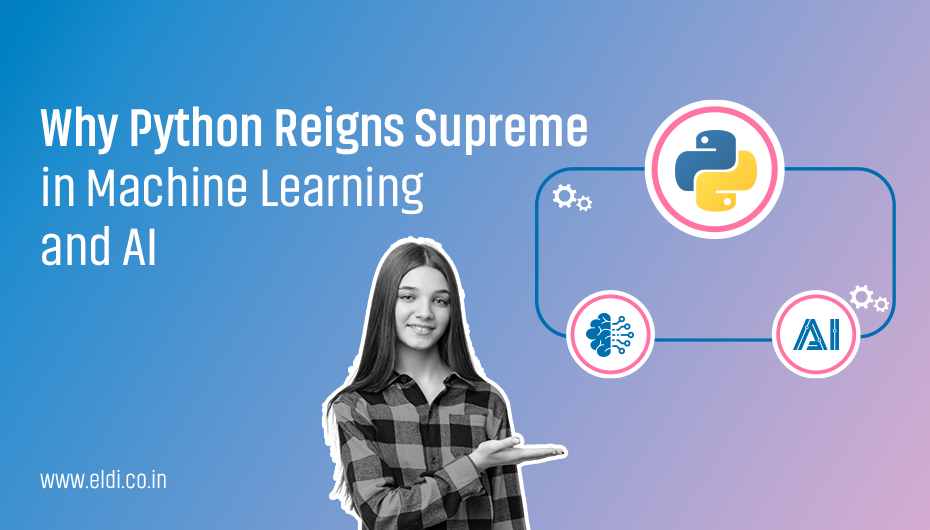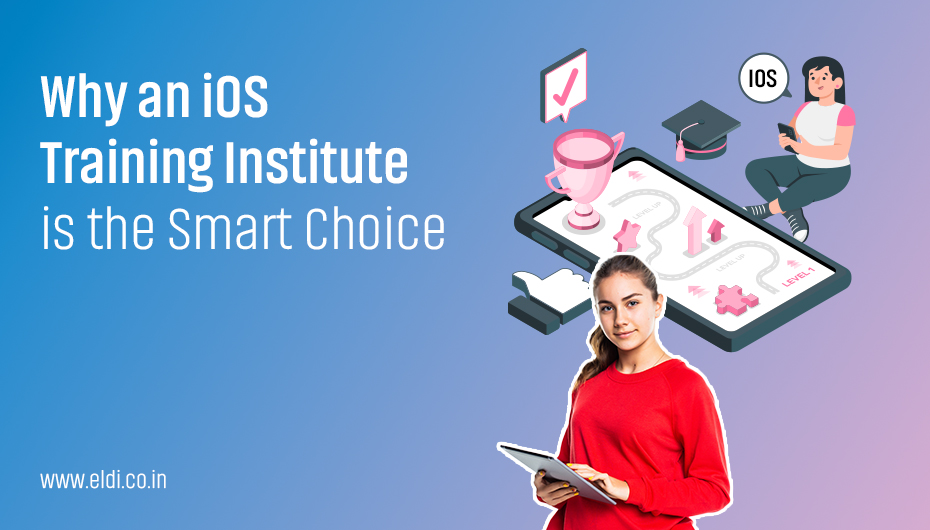Why Python Reigns Supreme in Machine Learning and AI
Python has emerged as one of the most popular programming languages for AI and also provides fine-tuning across different industry spheres such as health, finance, transportation, and more. When speaking about artificial intelligence or machine learning, all the prospects given by Python make it the number one preference among developers, data scientists, and researchers.
In this blog, we will explore why Python is suited for these fields analyze its unparalleled features, ecosystem, and community support, and explain why taking up a Python machine-learning course is a good choice.
The Rise of Python in AI and Machine Learning
Python is the talk of the town in terms of AI and ML since it combines simplicity and readability with a powerful set of tools. Python also serves as an entry point for beginners in programming or those transitioning to roles in data science and machine learning.
With the advancing complexities witnessed in artificial intelligence and machine learning now, those tasks have become even more streamlined, with a feature like Python in artificial intelligence, which simplifies workflows but does offer advanced capabilities, which has become indispensable.
Simplicity and Readability
AI and machine learning entails a complex workflow ranging from preprocessing massive datasets to building complex algorithms and neural networks. Python AI’s simple and intuitive syntax minimizes this complexity. It allows the developer to go beyond the syntax itself and focus on the problem rather than the fight against the code that has many lines.
Thus, the typically included activities in pipelines in machine learning are data cleaning, feature engineering, training models, and evaluating results. Python in artificial intelligence simplifies these operations by allowing for fast prototyping and reduced errors.
Python is highly readable, which encourages teamwork. Most machine learning projects involve cross-functional teams with data scientists, engineers, and domain experts. Because Python is close to natural language syntax, all team members, regardless of their technical backgrounds, can read the code. This increases productivity and improves project outcomes.
Vast Libraries and Frameworks
One of the key benefits of Python for machine learning is its extensive set of libraries and frameworks explicitly built for AI and data science. These tools help implement complex algorithms and workflows more straightforwardly.
Key Python Machine Learning Libraries
1. TensorFlow: A framework for building machine learning and deep learning applications, TensorFlow is highly scalable and quite flexible in implementing neural network training.
2.PyTorch: The unique feature of a dynamic computational graph makes it suitable for probing research and prototyping purposes, increasing its popularity among AI researchers.
3. Scikit-learn: Designed ideally for classical machine learning tasks, Scikit-learn is an all-inclusive collection of tools for regression, classification, clustering, and many more.
4. Keras: Keras is appropriate for developing and training deep learning models on TensorFlow, given its easy-to-use API.
5. Pandas: Pandas are very useful for data manipulation activities, such as cleansing, transforming, and analyzing datasets.
6. NumPy: Gives high-performance numerics in many ML workflows.
7. Matplotlib and Seaborn: Facilitate data visualization so developers can understand and communicate data trends.
These libraries really cut down on development time and effort and thus enable both beginners and experts to work on intricate projects.
Platform Independence
In AI and ML, most projects span multiple environments, such as local machines, the cloud, and edge devices. Python for machine learning supports cross-platform development, which allows a programmer to develop once and use that code without changes across operating systems like Windows, macOS, and Linux.
Why is Platform Independence Important?
- Simplicity of Installation: Python-written applications can be installed easily in more environments without deviating from the centralized theme.
- Cross-Platform Collaboration: Teams working on different systems can collaborate seamlessly without worrying about compatibility issues.
This makes Python perfect for deploying AI models in production environments or across distributed systems.
Continued Community Support and Active Development
The success of Python in artificial intelligence also comes from its active and vibrant community. From individual contributors to global organizations, Python enthusiasts have built an ecosystem of tools, tutorials, and best practices.
Community-Driven Advantages
1. Study resources: Python has become very famous and well-used in online learning resources, from the ample courses, tutorials, and documents available for beginners to those investigating cutting-edge research papers and projects for advanced users.
2. Third-Party: Thousands of modules are located in the Python Package Index (PyPI), which provides Python with the power to extend itself to very specialized needs in AI and machine learning.
3. Updates occurring frequently: The community for Python ensures that libraries and frameworks are updated and brought to the level of new frontiers in AI technology.
The Python community hastens innovations within AI and machine learning by providing solutions to common problems and encouraging collaboration.
Integration Signs
The majority of AI and machine learning projects require embedding other programming languages, tools, and platforms into their code. In this respect, Python shines, as it has seemingly endless integration capabilities, which enhances programming flexibility.
Instances of Integration in Python
1. CC++: Python can call C++ functions for performance-intensive tasks, combining the efficiency of C++ with Python’s simplicity.
2. R: By integrating with R, Python enables advanced statistical analysis and visualization.
3. SQL: Python directly interacts with databases, transferring data pipelines efficiently for machine learning models.
All these integrations allow Python to run into diverse workflows; thus, it is a very significant tool for AI in general.
Adoption in Academia and Industry
Python has really cemented its position in the AI landscape. Now, almost all universities worldwide teach Python programming for data science, while leading tech companies rely heavily on Python to drive innovation at their respective companies.
Academic Applications
Python is, far and wide, the language chosen by most courses in mainstream applications related to machine learning, AI, and data science because they find it easy to apply. Tools like Jupyter Notebooks, which execute along with the documentation, have actually become the cornerstone of contemporary education.
Industry Use Cases
Google: Many of Google’s AI applications use TensorFlow, a Python-based library.
Facebook: Relies on PyTorch for AI-related research and development.
Netflix: Uses Python to provide personalized recommendations and content delivery.
Merits of Python for Artificial Intelligence
Advantages of Python for AI Development
Learning Ease: Python is the first step up the learning curve, so newbies can quickly become engrossed in AI.
Complete Ecosystem: From data preprocessing to model deployment, it covers all stages of the AI pipeline.
Scalability: Small-scale prototype applications can be implemented in the same framework as production systems on a macroscopic scale.
Strong Community: Active forums, regular updates, and plenty of resources keep Python at the forefront of AI development.
Flexibility: Python is adaptable to various use cases, from natural language processing to computer vision.
Enrolling in a Python machine learning course is a serious step toward mastering Python’s potential. ELDI has carefully designed complete AI and machine learning programs so that aspirants are well-prepared for the market.
Why Use Python for Machine Learning?
Python is the best balance of simplicity, power, and flexibility. It is ideally suited for machine learning as it provides all appropriate means and support through tools for creating and deploying any AI model, from simply preprocessing massive datasets to creating complicated neural networks.
Final Thoughts
Python has become a dominant language for artificial intelligence because of its extremely good design versatility and community-based development. It is a simple yet powerful ecosystem whose learning by developers and researchers opens up new possibilities for creating innovative and impactful solutions.
For novices, Python is the starting point in the vast and fabulous world of artificial intelligence technology, and for professionals, it forms a reliable foundation. If you are interested in engaging yourself in this fantastic area, you can take a Python machine-learning course with ELDI. Therefore, arm yourselves with the tools you need to build the future of artificial intelligence!




